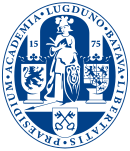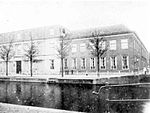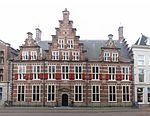Royal Netherlands Institute of Southeast Asian and Caribbean Studies

The Royal Netherlands Institute of Southeast Asian and Caribbean Studies (Dutch: Koninklijk Instituut voor Taal-, Land- en Volkenkunde, lit. 'Royal Institute for the Linguistics, Geography and Ethnology', abbreviated: KITLV) at Leiden was founded in 1851. Its objective is the advancement of the study of the anthropology, linguistics, social sciences, and history of Southeast Asia, the Pacific Area, and the Caribbean. Special emphasis is laid on the former Dutch colonies of the Dutch East Indies (now Indonesia), Suriname, and the Dutch West Indies (the Netherlands Antilles and Aruba). Its unique collection of books, manuscripts, prints and photographs attracts visiting scholars from all over the world. On July 1, 2014, the management of the collection was taken over by Leiden University Libraries.
Excerpt from the Wikipedia article Royal Netherlands Institute of Southeast Asian and Caribbean Studies (License: CC BY-SA 3.0, Authors, Images).Royal Netherlands Institute of Southeast Asian and Caribbean Studies
Sebastiaansdoelen, Leiden
Geographical coordinates (GPS) Address Nearby Places Show on map
Geographical coordinates (GPS)
| Latitude | Longitude |
|---|---|
| N 52.158333333333 ° | E 4.4825 ° |
Address
Witte Singel-Doelencomplex
Sebastiaansdoelen
2311 WN Leiden
South Holland, Netherlands
Open on Google Maps










